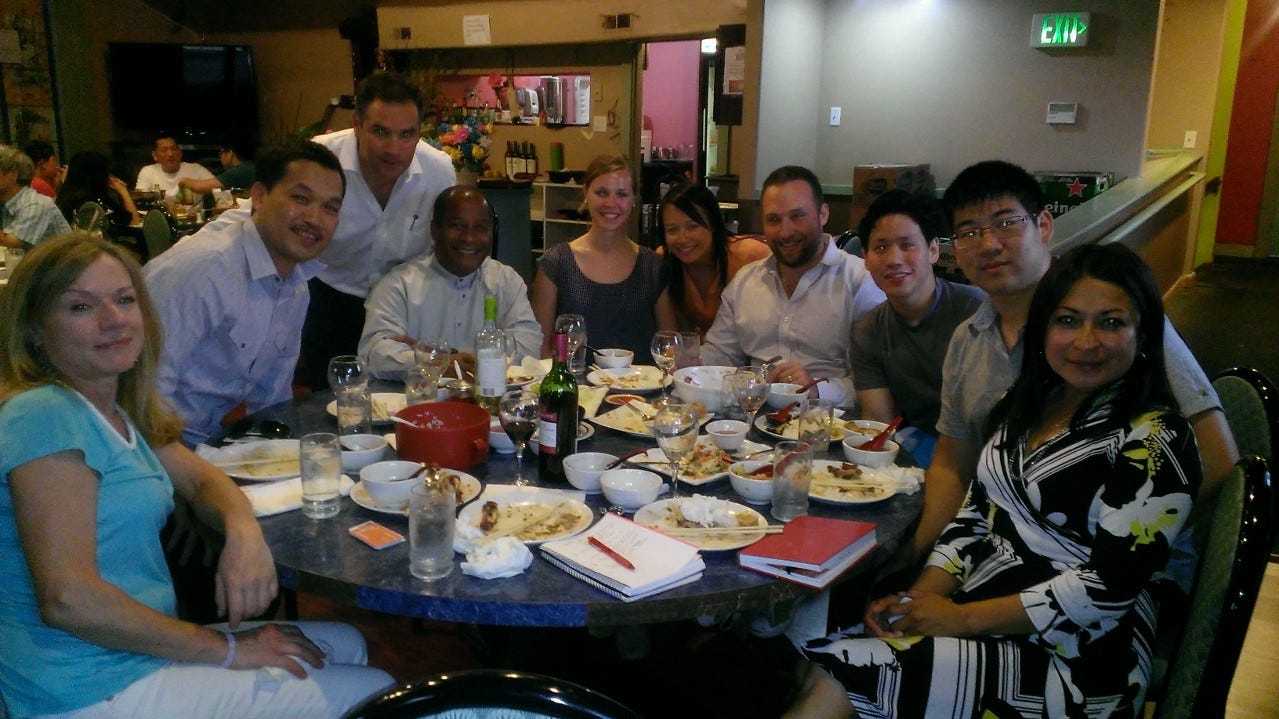A book review: 7 Forms of Respect
A Guide to Transforming Your Communications and Relationships at Work - by Julie Pham PhD
A tale of two dinners
Back in 2013 Julie started hosting meals with 9others in Seattle, USA, and those meals led to many challenges solved and connections made, and allowed 9others to gain some insights into US entrepreneurs and business. But it was another meal, which went a bit wrong, that led to Julie writing a book about respect, communication and how to do it better.
Julie’s book opens with a story about a work dinner she attended that didn’t go too well… She asked a well-meaning question as an ice-breaker but people felt that she’d gone too far, too personal. But Julie didn’t realise at the time — everyone answered the question she asked and it seemed to make the dinner more interesting. Or so she thought.
7 Forms of Respect is a readable and practical guide covering seven forms of respect, as Julie’s research defines them. The book is full of great examples where things went right or wrong as well as questions to ask yourself and practical ‘discussion prompts’ you can use to help broach sometimes difficult conversations.
7 take-aways from Julie’s book:
While we often think we’re the same person no matter who we are interacting with there are three main relationships at work: Senior, Peer and Junior. How you interact with each will change depending on the relationships and circumstances. That’s not a bad thing, just something to be aware of.
If you like having a bit of a prompt up your sleeve then ask, “Why does this matter to you?”, which can be a great way to gain trust and further insight.
Reflecting on that ‘why does this matter?’ question is hard and can take time. With that question you’re encouraging vulnerability so maybe people won’t necessarily be totally honest when answering for the first few times.
Most people don’t set out in the morning thinking, “I want to be disrespectful today!”. So an awful lot of disrespect is communicated unintentionally therefore we all need to think about why we act the way we do in different situations and with different people (again, ‘why does this matter?’: Think and reflect).
How people show respect (or otherwise!) is different when in-person and remote. For example, someone might be extremely diligent and attentive in-person but might sneak a look at social media if it’s a virtual meeting.
Some forms of respect are inherited from family, for example is someone you know always late? Why is that? If it wasn’t so important when growing then maybe that will be a tough habit to change.
Information (or lack of it) is connected to respect. At work, what’s the culture when it comes to sharing information? Are meetings open to all? Is the whole company cc’d on some emails but not others? What happens when an employee asks for more access to information?
What this book shows is that we need to be more aware of the non-obvious cues that show respect, or the lack or it, and it also describes ways we can communicate more effectively once we have a greater awareness. Further, it gives practice advice so that we can all encourage more respect, and with more awareness, prompts and reflection, how we can be more respected ourselves and have healthier conversations and relationships in the workplace.
And what was that question that Julie asked at the work dinner? You’ll have to buy the book to find out.
Upcoming meals with 9others
Manchester — Thursday 21st July — details and signup here.
London — Wednesday 27th July — details and signup here.
Manchester — Thursday 8th September — details and signup here.
Please book in & share with good people you know in the above cities.




